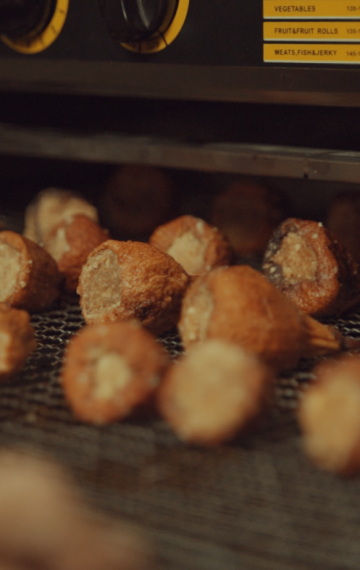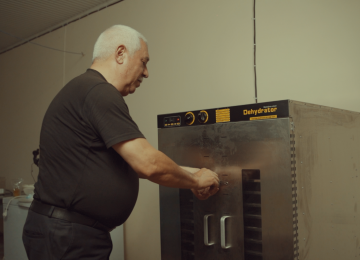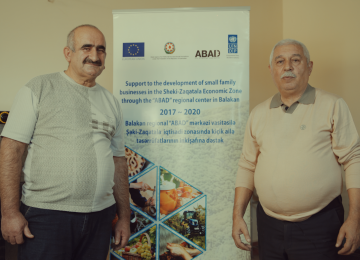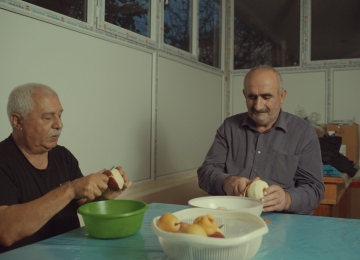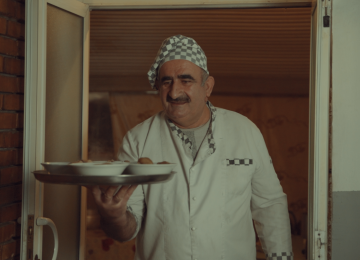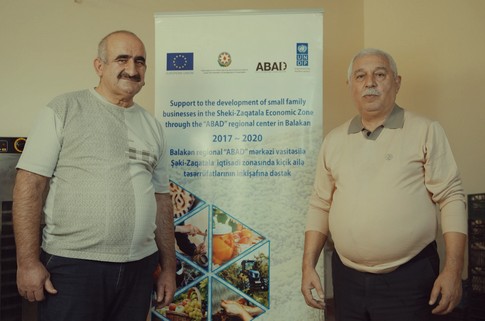
Sohrab Ismayilov starts his day with a traditional bowl of khash in the market of his hometown of Zaqatala at a small restaurant run by his lifelong friend Harun Nurayev. The two men, now both in their sixties, inevitably chat about their families — now linked together by the marriage of their children — and swap the latest local news. But it’s not long before they return to another family-related topic that’s been on their minds for some years now: the progress of the new business they’ve started together making ‘eco-products’.
After breakfast, Sohrab heads off to set up the production process in some premises they have set up in Harun’s yard. Later in the day, Harun joins him there to work together with the new equipment they have installed as part of the support they successfully applied for from the UNDP-ABAD project under the EU4Business umbrella for helping small family businesses in the Sheki-Zaqatala Economic Zone.
“We’re looking into new products now,” Sohrab explains cheerfully, “Our speciality is hazelnuts, but we can use some of the same drying and packaging equipment for other products like dried fruits and vegetables.”
Harun smiles at his friend’s enthusiasm. “He’s always like this — always tinkering.”
“Are we not ‘innovators’?” Sohrab retorts, “Doesn’t that mean inventing things?”
“I just do what he tells me,” Harun says, and they both laugh at this account of their partnership, since in truth they know it is the combination of their different skills that is the secret to their success.
The two friends’ enthusiasm and curiosity about business made them highly popular among the participants and teachers in the numerous training courses they attended as part of the EU4Business project run in Zaqatala by ABAD and UNDP.
“They really kept us on our toes with their questions,” recounts one of the trainers. “They wanted to know everything at once — like how they could boost their profile on Google, how much profit could be made from each product and how many items had to be sold to break even, what the temperatures has to be for shipping the food products, et cetera. They made the sessions a lot more fun and interactive. They even got us all trying their products and giving them feedback!”
After completing all the courses they could business and technical skills, including training in branding and marketing and tax-related issues, Sohrab and Harun started working at full capacity with the new equipment they applied for from the project — a refrigerator, a hazelnut breaker, a drying stove and other tools.
The success of their sales of packed roasted hazelnuts in ABAD’s ethno-boutiques encouraged them to try new lines of products, and they are now working with ABAD technologists on ways to produce chopped and frozen vegetables and Alana fruit desserts.
“We’re working with our families for now, but we’ll soon be looking to employ more people when all the restrictions for Covid-19 are lifted,” explains Sohrab. “It’s easy to say, but really we are living out our dream with this business.”
“It’s an enterprise we can pass on to our children and grandchildren,” adds Huran. “That’s what drives us to keep learning and growing this business.”
***
The “Support to the Development of Small Family Businesses in the Sheki-Zaqatala Economic Zone through the ABAD Regional Centre in Balakan” project is funded by the EU as part of its EU4Business Initiative and co-funded and implemented by UNDP and the ABAD State Agency for Public Services and Social Innovations. The project aims to support 44 rural families to start up and expand their own local businesses, providing them with training in business development and planning, branding and design, financial accounting and legal assistance services. The project also provides beneficiaries with the equipment they need to expand.

